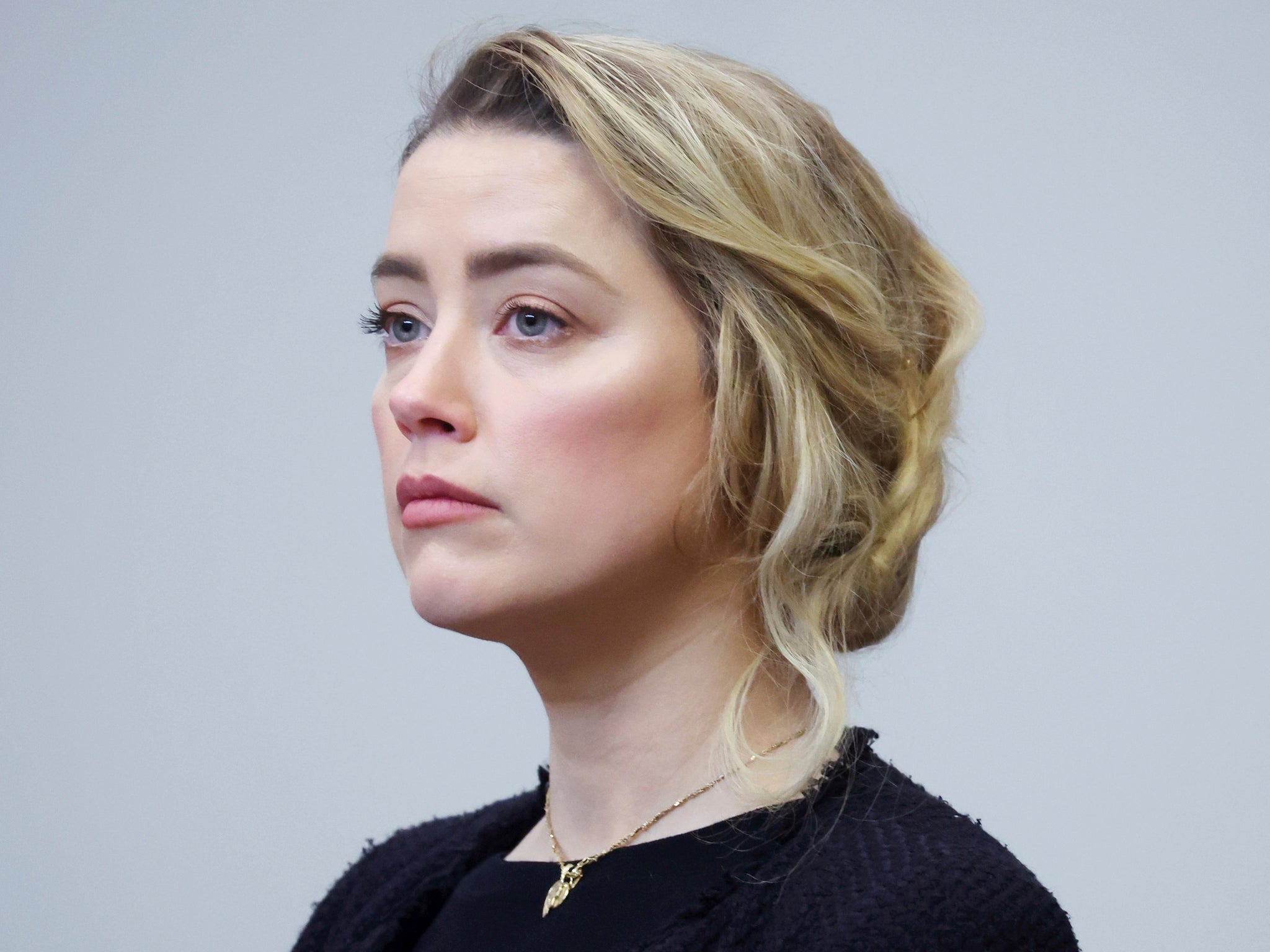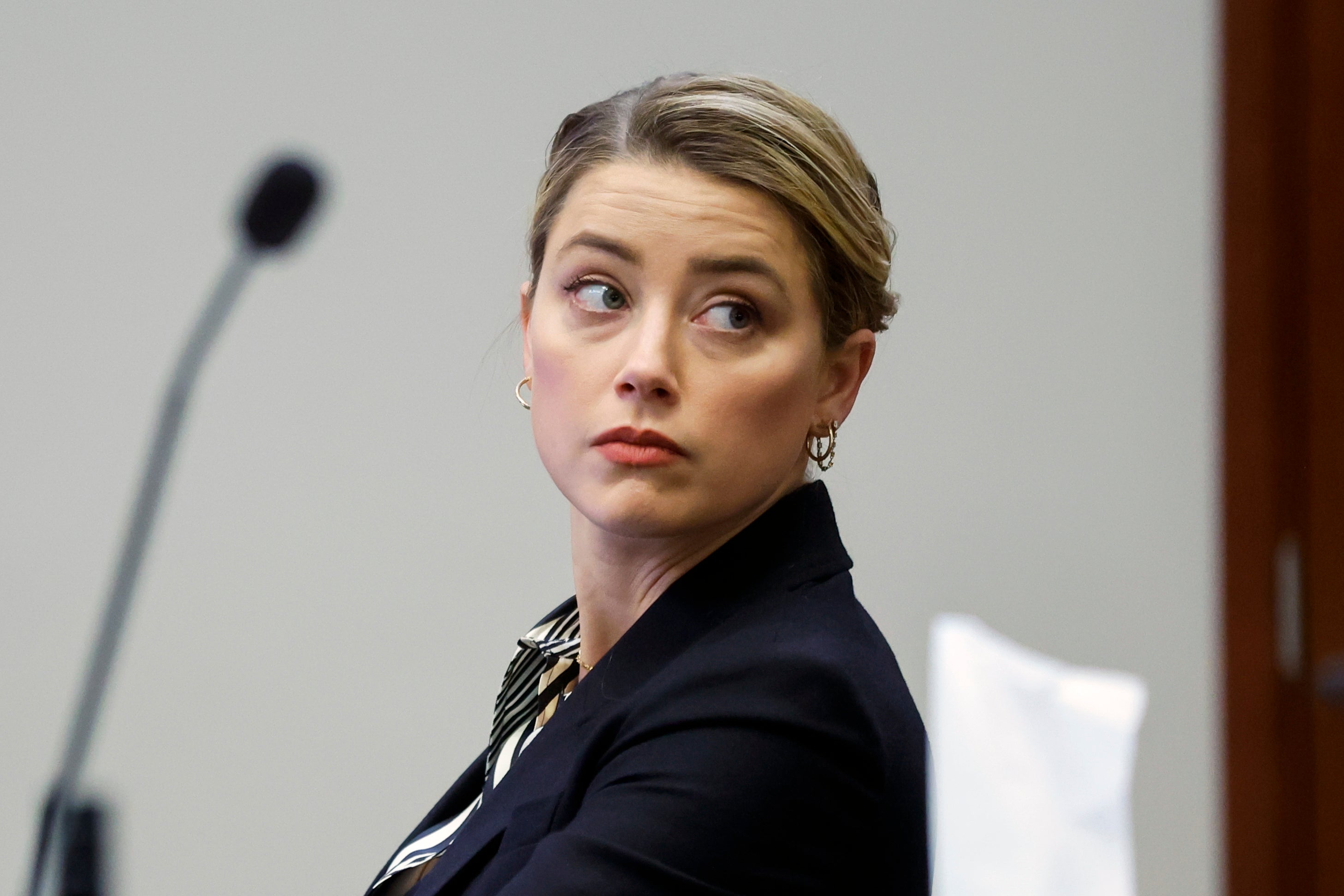I have Borderline Personality Disorder – it shouldn’t be weaponised against Amber Heard
Johnny Depp’s legal team has claimed Amber Heard has two personality disorders, but Mina Hadi argues that this is a concerning approach to mental health

I was diagnosed with borderline personality disorder (BPD) around three years ago. I’d had a particularly uncharacteristic outburst at a family member and finally decided to go to my GP, who referred me to a psychiatrist. He saw me for just two sessions before he diagnosed me.
As many BPD sufferers feel when they first receive a diagnosis, there’s a sense of relief because there’s a name for how you’re feeling, a concrete term that you can point to. But once my emotions had settled, I felt differently. I was hesitant to mention my diagnosis to my family or employer because – let’s face it – the phrase “emotionally unstable” does not inspire confidence. The description of me as borderline paints a specific, misleading picture of me being inherently dangerous – but the air needs clearing on the reality of BPD for many people.
This week Amber Heard received a diagnosis of BPD along with histrionic personality disorder by psychologist Dr Shannon Curry, who was hired by Johnny Depp’s legal team. The diagnosis is part of the ongoing defamation trial between Depp and Heard which began on 11 April. Depp is arguing that Heard defamed him when she wrote an op-ed published in The Washington Post in 2018 titled “I spoke up against sexual violence – and faced our culture’s wrath. That has to change”. Depp was not mentioned by name in the article.
BPD is the most commonly recognised personality disorder. There are nine symptoms in all, and five need to be met in order to have a BPD diagnosis – among them are impulsive behaviours (like substance overuse), self-harm, chronic emotional hollowness, intense fears of abandonment and unstable relationships. Around 75 per cent of people with BPD make at least one suicide attempt in their lifetime, with up to 10 per cent of people with BPD dying by suicide.
Dr Curry considers Heard to be “self-righteous”, “judgemental” and angry, describing the actor as flitting between “princess and victim”. I’m not a psychologist, but I do use my lived experience to deliver training to plenty of mental health professionals. By Dr Curry’s own admission, her observations “aren’t fact”. Rather, “[Heard’s] scores were consistent with other people who had obtained these scores [...] [with] these specific traits”.

I am not the first to dispute the terminology of personality disorders, potential biases in diagnosis and how it doesn’t take social context into account enough. So when Dr Curry put forward this diagnosis as part of the case being built in the libel trial against Heard, and which appeared to attribute Heard’s alleged antagonism to her BPD, the grounds for doing so are shaky at best, particularly as BPD is so often misdiagnosed.
These labels are being placed on an alleged domestic abuse survivor in an attempt to discredit her claims. The US trial follows a similar libel case brought by Depp in the UK against The Sun newspaper in 2020. In November of that year, a judge found the newspaper’s description of Depp as a “wife-beater” to be “substantially true”.
Research has also shown a strong correlation between trauma and BPD. So you’d think this, and the sensitive nature of the case, would prompt a more compassionate discussion of the diagnosis.
These labels are being placed on an alleged domestic abuse survivor in an attempt to discredit her claims
Perhaps it’s the language used which should be reconsidered. Many mental health interventions now use an alternative term, Complex Emotional Needs, which doesn’t imply, as “personality disorder” does, that there is something inherently wrong with someone. With BPD, this negativity is even more intensely felt when considering its other term: emotionally unstable personality disorder.
Dr Curry spoke to the court in her testimony about the use of scales in diagnosis and she described mental health issues as generally having genetic, neurological and environmental components. So how far along on the scale were Heard’s alleged outbursts? To me, these aren’t characteristics of a specific personality disorder but rather the fallibility and flaws of human behaviour. Her alleged actions should be adjudicated as such, and not conflated with a diagnosis to be weaponised.

When these conversations about complex psychological issues are brought into the public eye, they’re oversimplified and risk tarring so many others with the same brush. Not to mention placing blame on someone who, in this case, has claimed to be the victim of abuse. It sets a precedent for future cases involving people with BPD, whose diagnoses can be used against them in a court of law.
So rather than pathologise the alleged actions of a single individual and throw everyone with BPD under the bus in the process, I suggest normalising these conversations – in the public eye, in workplaces and at home. Irrespective of the outcome of this trial, we need to listen to people who have BPD. It’s not easy to live with, but it’s also not what defines me or others with the diagnosis – and it certainly shouldn’t be a defence in a domestic abuse trial.
Join our commenting forum
Join thought-provoking conversations, follow other Independent readers and see their replies
Comments
Bookmark popover
Removed from bookmarks